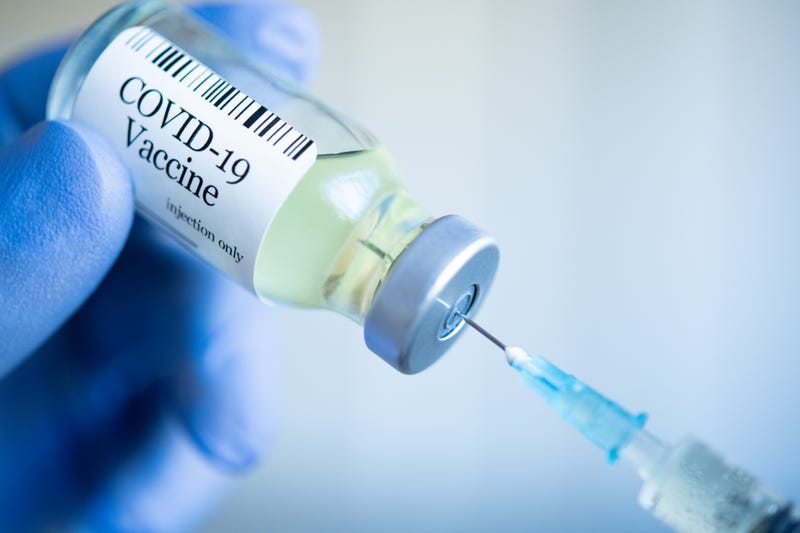
COVID-19 booster shots have continued to be a hot topic as the Food and Drug Administration has worked to decide who will and who won't need an extra shot. Unfortunately, this has left many Americans confused and wondering if they need one.
Dr. Michael Osterholm joined News Talk 830 WCCO's Chad Hartman to clarify the situation and explain why the shots aren't given all at once.
"People are very confused, and it is a challenge to understand what is happening, but it's also a process," Osterholm said.
Currently, there are several moving parts about who will need a booster or not and the effectiveness of the shots. However, when the pandemic started, Osterholm said that the goal was to get a vaccine that was at least 50% effective.
When reports came out that the two mRNA vaccines, from Pfizer and Moderna, were 95-99% effective, expectations may have been set too high. So now, he wants to remind people what the vaccines are meant to do.
"Anybody who has studied vaccine research knows that there are two buckets you have to really confirm and understand if you are gonna do this kind of work," he said.
The two buckets he referred to are safety and how to make vaccines effective. When it comes to safety, he says there is plenty of research showing why they are safe.
Although he shared that the reason the two-dose vaccines were administered weeks apart was so they could be as effective as possible.
"Think of your immune system like a marathon runner," he said when describing getting a shot.
A runner who runs a marathon and records a great time isn't going to turn around the next hour and run again.
This is how Osterholm sees getting one of the shots. He says to create the best protection in your immune system, you have to spread out the shots, just like conditioning for a big race.
The problem, now he says, is that medical professionals did not know how the vaccine would last after the second dose, and Osterholm thinks this could have been communicated more clearly.
"We should have been more clear to the public and said, you know we're going to study now to see what this does," he said. "How do people's protection last and, what does that mean?
"Well, now we have three different vaccines, and we now have eight months or more since the first people were vaccinated with this," Osterholm said, sharing that we have more data now than ever before.
He shared that the main problem now is people getting breakthroughs and mild infections. However, he said the need for another shot is common with vaccines.
"If you look at other vaccines that we've had and do use every day… it's not unusual to have to get two or three doses up to a year apart to get the maximum immune response," he said.
Now, Osterholm says we are watching what he calls "corrected science" as more information about vaccines and immunity continues to come out.
"We learn, we implement, we study it, we learn more, we implement," he said. "What's unfortunately happening is people are watching this in front of real-life and saying 'what's going on here?'"
But what's going on is normal, he says. Moreover, the need for boosters is nothing new with shots, as several vaccines have required a booster.
As of right now, the FDA is only recommending a booster shot for those aged 65 and older or anyone with a compromised immune system.
But, within a few months to a year, Osterholm thinks that everyone will get a third dose of the vaccine. This time he says protection from the virus will be the best it's ever been.
"Those vaccines are gonna last much, much longer," Osterholm said.




